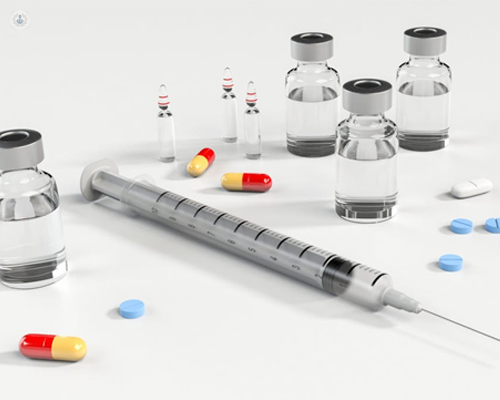


What is poisoning?
Poisoning refers to accidental contact with toxic substances that may lead to serious health problems, possibly becoming life-threatening. With regard to paediatric poisoning, the majority of cases usually occur at home by ingestion of medications, cleaning products or gardening products. Poisoning is a common reason for paediatric consultations; in the last few years, the rate of such consultations seems to have stabilised, due in part to better health education for families and to safety measures. Hence, it is very important to keep toxic products and medications out of reach of children. Other causes of poisoning are stings and bites by insects or animals, and food poisoning. The diagnosis requires a full physical examination of the child; the treatment depends on the poisoning.

Prognosis:
The prognosis may be good or poor, depending on the type of poisoning and its severity. The most important thing is to contact a specialist so that the relevant tests can be carried out for the type and severity of the poisoning.
Symptoms of poisoning:
The symptoms vary depending on the toxic substance that has been ingested. In addition, they may appear after some time. The most common are:
- Abdominal pain
- Chest pain
- Confusion and drowsiness
- Dizziness
- Diarrhoea
- Coughing
- Headache
- Tachycardia and palpitations
- Loss of appetite with nausea and vomiting
- Loss of consciousness
- Seizures
- Urinary incontinence
If there are no symptoms but you suspect poisoning, do not hesitate to contact a specialist.
Medical tests for poisoning
Tests for poisoning include:
- Blood tests
- Toxicology examination
- Testing for household poisons
What are the causes of poisoning?
Some of the elements/products responsible for poisoning include:
- Carbon monoxide (from ovens, gas engines, fires, heaters)
- Insecticides
- Certain foods and plants
- Chemicals in the workplace
- Drugs, including therapeutic drugs (prescribed or over-the-counter) and recreational drugs
- Detergents and cleaning products for household use
- Indoor and outdoor plants
- Paint
Can poisoning be prevented?
Great caution must be exercised when using household products that are toxic (medications, cleaning products, gardening products). Furthermore, toxic household products must be kept out of reach of children.
You must also pay special attention to the plants you have at home; it is important to know them, especially fungi, roots and wild berries.
If you think that the land or water in your area may be contaminated with toxic products, contact the health department of your local authority.
If in spite of preventive measures you have come into contact with a toxic substance, you require immediate treatment to prevent greater harm.
Treatments for poisoning:
Treatment for poisoning usually varies depending on the cause and the severity of symptoms. If the poisoning is mild, it usually resolves within a few days. If the poisoning is moderate or severe, it will take longer to resolve and one of the following treatments may be necessary:
- Hospital admission to replace substances that the body has been losing, e.g. minerals and calcium. In case of food poisoning, all of these nutrients may have been lost as a result of symptoms like diarrhoea and vomiting. This measure will prevent dehydration.
- The specialist may prescribe antibiotics, depending on the type of poisoning and the severity.
Which specialist treats poisoning?
The specialist who treats poisoning is an expert in general medicine. Your general practitioner or an accident and emergency centre would be where you would seek an initial consultation for suspected poisoning.